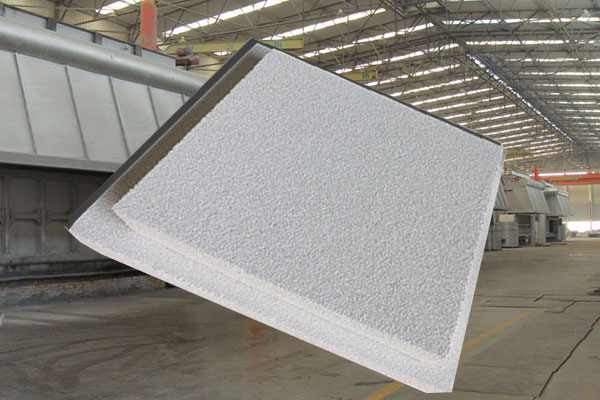Ceramic Filter Dirut Inalum is used in the aluminum processing industry, such as electrolytic aluminum plants, strip processing plants, foil processing plants, tubular bar processing plants, and recycled aluminum ingot factories.
The quality of alloyed aluminum is very important, which greatly affects the performance of subsequent processes and the quality of final products. Therefore, all countries in the world like the refining of aluminum alloy.
In the smelting process, aluminum in a molten or semi-molten state exposed in the furnace atmosphere is easy to oxidation, easy to react with water vapor hydrogen absorption, and easy to form a variety of forms of nonmetallic slag and coarse intermetallic compound particles.

Production Process of Ceramic Filter Dirut Inalum
The ceramic foam filter takes the three-dimensional structure and the organic foam sponge connected with the pores as the carrier penetrates the special ceramic slurry with thixotropic and applies the special roller extrusion process to evenly apply the ceramic slurry on the carrier bone. It is then dried and solidified before being fired at high temperatures.
Porous ceramic foam filter takes polyurethane foam as the carrier, immerses it into a layer composed of ceramic powder, adhesive, sintering agent, suspension agent, and so on, and then extrudes the excess layer, and evenly coats the ceramic layer on the carrier. The bones become green and are dried and fired at high temperatures.
Foam ceramics have high mechanical strength, chemical stability, and high resistance to thermal shock and liquid metal flow shock even in high-temperature environments.
Increase the compression and sealing of the casting, increase the elongation and tensile strength of the casting, improve the surface finish of the casting, improve the fluidity of the molten metal, and increase the filling capacity and replenishing capacity of the melt.
Simplify the casting system, reduce the length of side runners, and increase the yield of castings.
Reduce processing time and tool wear, and improve the surface quality of castings.
Reduce the gas and inclusions contained in the castings, reduce the turbulence of the molten metal when filling the mold, reduce the surface defects of the castings, and significantly reduce the rejection rate of the castings.
There is no slag inclusion or breakage during the working process, which ensures the stability of the quality and chemical composition of the molten metal.
With a large and stable metal flow, even if the content of inclusions in the molten metal is high, the foam ceramic filter will not be blocked.
With high dimensional accuracy, it can be automatically put into the production line.

